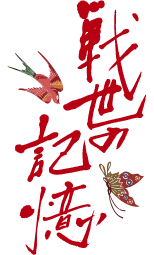
“Family taking refuge in an air-raid shelter under naval gunfire and my life at the orphanage after the war”
“Family taking refuge in an air-raid shelter under naval gunfire and my life at the orphanage after the war”
Shousei Kishaba, 77 years old
(Place of birth: Miyagi, Urasoe-city, Okinawa Prefecture)
When the war started, my father was drafted into the defense force, so my grandfather, elder sister, younger sister and I, the four of us, ran away.
U.S. Armed Forces disembarked on the island on April 1st and approached our village quickly. What I remember clearly is when our house was burnt down. Most houses back then were built with a thatched roof and once incendiary bombs were dropped, the houses caught on fire instantly.
As our house was burnt down, we took refuge in an air-raid shelter. There were a couple of families besides us in the shelter. Then, the situation of the battle worsened and the battle became fiercer and the naval gunfire began at last. Many air-raid shelters in different locations were destroyed, which made us feel unsafe to stay in the shelter any longer, and we all left the shelter.
After leaving the shelter, we went to the natural cave which used to be in what is now called Camp Kinser (Urasoe-city). While we were moving to the cave, I heard a gunshot and the very next moment my grandfather, who was right beside me, fell.
Then we took refuge into the cave with my elder sister leading my younger sister by hand. There were seven or eight women hiding in the cave. After a while, U.S. Armed Forces came to attack the cave and started calling out saying, “Come out. Come out.” Then I saw four or five American soldiers coming into the cave. Someone said, “Don’t go out. You should not go out,” followed by, “Throw this,” while pointing at a hand grenade. Not knowing how to use the grenade, I was unable to throw it. Then someone pretended to throw the hand grenade. After seeing the throwing motion, the American soldiers retreated from the cave and gave up on persuading us to come out.
Soon after that, white phosphorus grenades were thrown into the cave. With fireballs scattered all over the place, everyone panicked and shouted, “Let’s get out of here! We will all be killed!” All my elder sister and I could do was run for ourselves, and we escaped from the cave leaving our younger sister behind. While escaping from the cave, my younger sister who just came into my sight was staring at me, but I could not do anything to help her.
After escaping from the cave, we crossed the Kowan River in Urasoe City and kept going until we found an air-raid shelter. We tried to get into the shelter, but gave up because the shelter was already filled with Japanese soldiers. We fortunately were able to find another air-raid shelter where we could hide, but soon the American soldiers came to the shelter and we all were chased out of the shelter by flamethrower. We then became prisoners of war.
As we were not injured, we soon were taken to an orphanage in Koza, Okinawa City. To our surprise, at the orphanage we found our younger sister who we left at the cave. However, she looked like a completely different girl with her stomach swollen and eyes sunk. I wondered how many days she stayed in the cave where she was left alone in total darkness without any food. She was only a three year old child. Our younger sister was hospitalized due to her physical conditions and my elder sister and I stayed at the orphanage. This was the start of my life after the war.
(Looking back at the war)
I think that I would like to pass down my experiences and what I have been through during the war to our children by word of mouth. As time goes by, I see movements that glamorize war. It is the most terrible thing to revise history and change the historical facts. I want to stop any movements toward engaging in another war in the future no matter what it takes.
Shousei Kishaba, 77 years old
(Place of birth: Miyagi, Urasoe-city, Okinawa Prefecture)
When the war started, my father was drafted into the defense force, so my grandfather, elder sister, younger sister and I, the four of us, ran away.
U.S. Armed Forces disembarked on the island on April 1st and approached our village quickly. What I remember clearly is when our house was burnt down. Most houses back then were built with a thatched roof and once incendiary bombs were dropped, the houses caught on fire instantly.
As our house was burnt down, we took refuge in an air-raid shelter. There were a couple of families besides us in the shelter. Then, the situation of the battle worsened and the battle became fiercer and the naval gunfire began at last. Many air-raid shelters in different locations were destroyed, which made us feel unsafe to stay in the shelter any longer, and we all left the shelter.
After leaving the shelter, we went to the natural cave which used to be in what is now called Camp Kinser (Urasoe-city). While we were moving to the cave, I heard a gunshot and the very next moment my grandfather, who was right beside me, fell.
Then we took refuge into the cave with my elder sister leading my younger sister by hand. There were seven or eight women hiding in the cave. After a while, U.S. Armed Forces came to attack the cave and started calling out saying, “Come out. Come out.” Then I saw four or five American soldiers coming into the cave. Someone said, “Don’t go out. You should not go out,” followed by, “Throw this,” while pointing at a hand grenade. Not knowing how to use the grenade, I was unable to throw it. Then someone pretended to throw the hand grenade. After seeing the throwing motion, the American soldiers retreated from the cave and gave up on persuading us to come out.
Soon after that, white phosphorus grenades were thrown into the cave. With fireballs scattered all over the place, everyone panicked and shouted, “Let’s get out of here! We will all be killed!” All my elder sister and I could do was run for ourselves, and we escaped from the cave leaving our younger sister behind. While escaping from the cave, my younger sister who just came into my sight was staring at me, but I could not do anything to help her.
After escaping from the cave, we crossed the Kowan River in Urasoe City and kept going until we found an air-raid shelter. We tried to get into the shelter, but gave up because the shelter was already filled with Japanese soldiers. We fortunately were able to find another air-raid shelter where we could hide, but soon the American soldiers came to the shelter and we all were chased out of the shelter by flamethrower. We then became prisoners of war.
As we were not injured, we soon were taken to an orphanage in Koza, Okinawa City. To our surprise, at the orphanage we found our younger sister who we left at the cave. However, she looked like a completely different girl with her stomach swollen and eyes sunk. I wondered how many days she stayed in the cave where she was left alone in total darkness without any food. She was only a three year old child. Our younger sister was hospitalized due to her physical conditions and my elder sister and I stayed at the orphanage. This was the start of my life after the war.
(Looking back at the war)
I think that I would like to pass down my experiences and what I have been through during the war to our children by word of mouth. As time goes by, I see movements that glamorize war. It is the most terrible thing to revise history and change the historical facts. I want to stop any movements toward engaging in another war in the future no matter what it takes.


